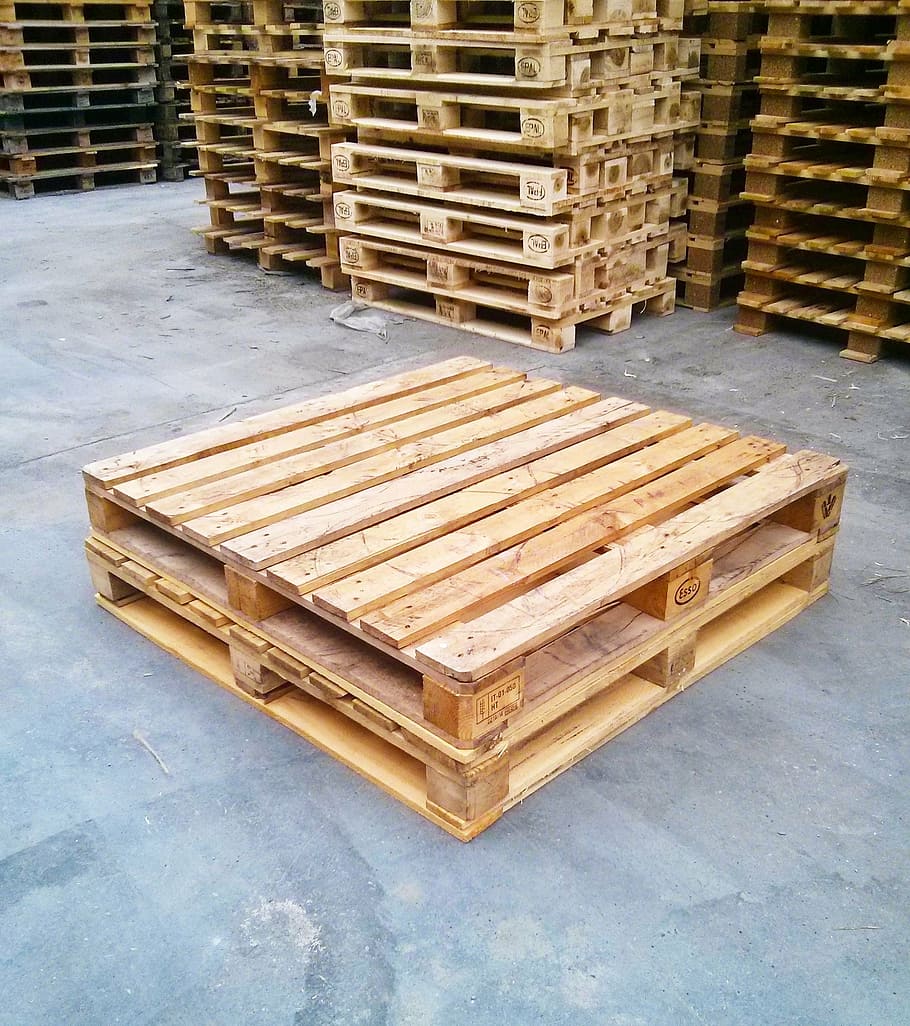
Wood pallets are a versatile and widely used component in various industries. These flat, portable structures are used to transport, store, and organize goods safely, securely, and efficiently. The industrial applications of such pallets are numerous and varied, and they play a crucial role in ensuring that products are handled and delivered cost-effectively and sustainably. You can find a variety of wood pallets for sale from local suppliers, making it easy to find the right pallets for your specific needs. Read on to learn more about wood pallets’ industrial uses and benefits.
Industrial applications of wood pallets:
Warehousing and distribution:
One of the most common industrial applications is in warehousing and distribution centers. In these settings, pallets are used to store goods in an organized and efficient manner. The standardized size and shape of pallets make it easy to stack and store products, allowing for maximum use of vertical space.
Manufacturing:
They are also widely used in manufacturing plants to transport raw materials and finished products. They can be used to move goods between production stages and store products during the manufacturing process. Using pallets in manufacturing can help reduce handling costs, minimize product damage, and improve efficiency.
Retail:
They are often used in-store displays to showcase products to customers and can also be used to transport goods between warehouses and retail locations. Using pallets in retail can help reduce handling costs, improve organization, and reduce the risk of product damage.
Construction:
Pallets made of wood transport building materials and equipment in the construction industry. They are often used to move heavy loads such as bricks, blocks, and bags of cement. Pallets can also be used as temporary flooring or scaffolding, providing workers with a safe and stable platform. Using pallets in construction can help to reduce manual labor, improve safety, and reduce the risk of product damage.
Agriculture:
Wood pallets are used in agriculture to transport crops, animal feed, and equipment. They can be used to move goods between farms and store products in barns or sheds. Pallets can also be used as a platform for irrigation systems, allowing for easy movement and adjustment of equipment. Using pallets in agriculture can help to reduce handling costs, improve organization, and reduce the risk of product damage.
Benefits of using wood pallets:
Cost-effective:
Wood pallets are relatively inexpensive, especially compared to other materials such as plastic or metal. They are also designed to be reused multiple times, reducing costs.
Durability:
Pallets made of wood are known for their durability and ability to withstand the wear and tear of industrial use. They are designed to support heavy loads and can last for several years. This durability ensures that products are transported safely and securely, reducing the risk of damage during transportation and storage.
Recyclable:
They are recyclable and can be repurposed for other applications after they have been used for industrial purposes. This reduces waste and helps to conserve natural resources. In addition, many companies offer pallet recycling programs, which can help businesses to reduce their environmental impact.
Standardized size:
Sizes of pallets are standardized, meaning they are produced in a consistent size and shape. This makes it easy to stack and transport goods safely and efficiently. The standardized size also helps to reduce the need for custom packaging, which can further reduce costs and improve efficiency.
Wood pallets are a versatile and important component in various industries. When looking for wood pallets for sale, consider their size, weight capacity, and durability to ensure they meet your transportation and storage requirements. These pallets allow goods to be transported, stored, and organized safely and efficiently. As industries continue to evolve, these will remain a crucial component of the supply chain. Their versatility, durability, and sustainability make them an ideal choice for industrial applications.


